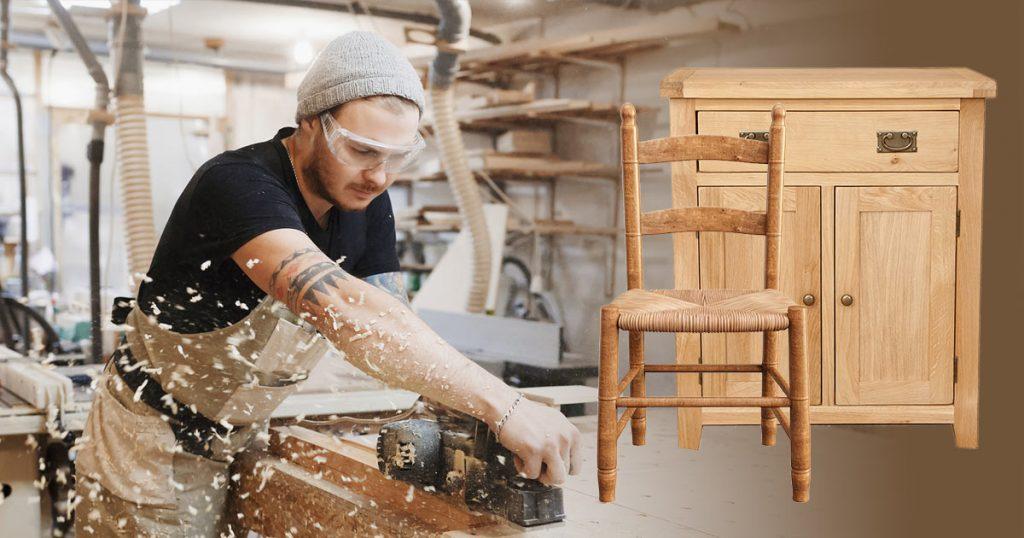Woodworking for beginners is an exciting journey that opens the door to creativity and hands-on craftsmanship. Whether you dream of building furniture, creating decorative pieces, or crafting useful items, woodworking allows you to express yourself and develop a valuable skill set. This blog will guide you through the basics of woodworking, the essential tools you’ll need, and some practical tips to help you start your journey.
What is Woodworking?
Woodworking is the art and craft of shaping wood to create functional or decorative items. This versatile hobby can range from simple projects like birdhouses and shelves to complex undertakings like cabinets and intricate furniture. In essence, woodworking involves cutting, shaping, and assembling pieces of wood into finished products.
It’s a practice that combines creativity with technical skills, making it a rewarding way to bring your ideas to life. Many beginners find that woodworking not only enhances their practical skills but also provides a sense of accomplishment with each project completed.
Woodworking Tools to Familiarize Yourself With
Getting started with woodworking means becoming acquainted with a variety of tools that will make your projects easier and more enjoyable. Here are some essential tools to familiarize yourself with:
Drills
Drills are essential for creating holes in wood. They come in various types, including corded and cordless models. A cordless drill is particularly handy for beginners due to its portability.
Saws
Saws are crucial for cutting wood into desired shapes and sizes. Beginners often start with a hand saw or a circular saw, both of which are versatile for various projects.
Blades
Having the right blades for your saw is important for achieving clean cuts. There are different types of blades designed for specific materials and cutting techniques, so it’s good to learn about them early on.
Chisels
Chisels are used for carving and shaping wood. They come in various sizes and shapes, allowing for detailed work and precise cuts. A beginner set typically includes a few basic chisels to get started.
Clamps
Clamps hold pieces of wood together while you work, making them essential for ensuring accuracy and stability during assembly. There are different types of clamps, including bar clamps and C-clamps.
Planers
Planers are used to smooth and flatten surfaces of wood. They help achieve a uniform thickness, which is especially important for creating furniture pieces.
Sanders
Sanders are tools that smooth rough edges and surfaces, preparing wood for finishing. Orbital sanders are popular among beginners due to their ease of use and efficiency.
Is Woodworking a Great and Lucrative Career?
Woodworking can indeed be a fulfilling and lucrative career for those passionate about crafting with wood. Many professional woodworkers create custom furniture, cabinetry, and unique art pieces, which can command high prices. Additionally, the demand for skilled woodworkers remains strong, as many people appreciate handcrafted items.
The versatility of woodworking allows individuals to specialize in various areas, from construction to artistic creations, making it a viable career option. For those looking to turn their hobby into a profession, gaining experience and building a portfolio can lead to exciting opportunities in the field.
Skills Required to Be a Woodworker
To become a proficient woodworker, several key skills are essential. First and foremost, a good understanding of woodworking techniques is crucial. This includes knowledge of joinery, cutting methods, and finishing processes. Additionally, attention to detail is vital; even small errors can affect the overall quality of a project.
Problem-solving skills also play a significant role, as woodworkers often encounter unexpected challenges during their work. Basic math skills are necessary for measurements and calculations, ensuring precise cuts and fits. Finally, a sense of creativity helps woodworkers design unique pieces that stand out and reflect their personal style.
How to Start Woodworking
Starting woodworking doesn’t have to be overwhelming. Here are some tips to help you begin:
Set Up a Workspace
Find a dedicated area with enough space and good lighting to work safely and comfortably.
Gather Essential Tools
Begin with basic tools like a saw, drill, chisels, and clamps. As you progress, you can expand your toolkit.
Start with Simple Projects
Choose beginner-friendly projects, such as birdhouses or small shelves, to build your confidence and skills.
Learn the Basics
Familiarize yourself with woodworking techniques through online tutorials, books, or local classes.
Practice Safety
Always prioritize safety by wearing protective gear, such as goggles and gloves, and following proper tool usage guidelines.
Join a Community
Connect with local woodworking groups or online forums to share experiences, ask questions, and gain inspiration.
Get Started on Your Woodworking Journey
In conclusion, woodworking for beginners is an enriching experience that combines creativity, skill development, and the joy of crafting. Understanding the basics of woodworking and familiarizing yourself with essential tools allows you to gradually build your skills and transform raw materials into beautiful, functional items. Whether you pursue woodworking as a hobby or consider it as a potential career, the satisfaction of creating something with your hands is truly unparalleled. So grab your tools, get inspired, and start your woodworking adventure today!
